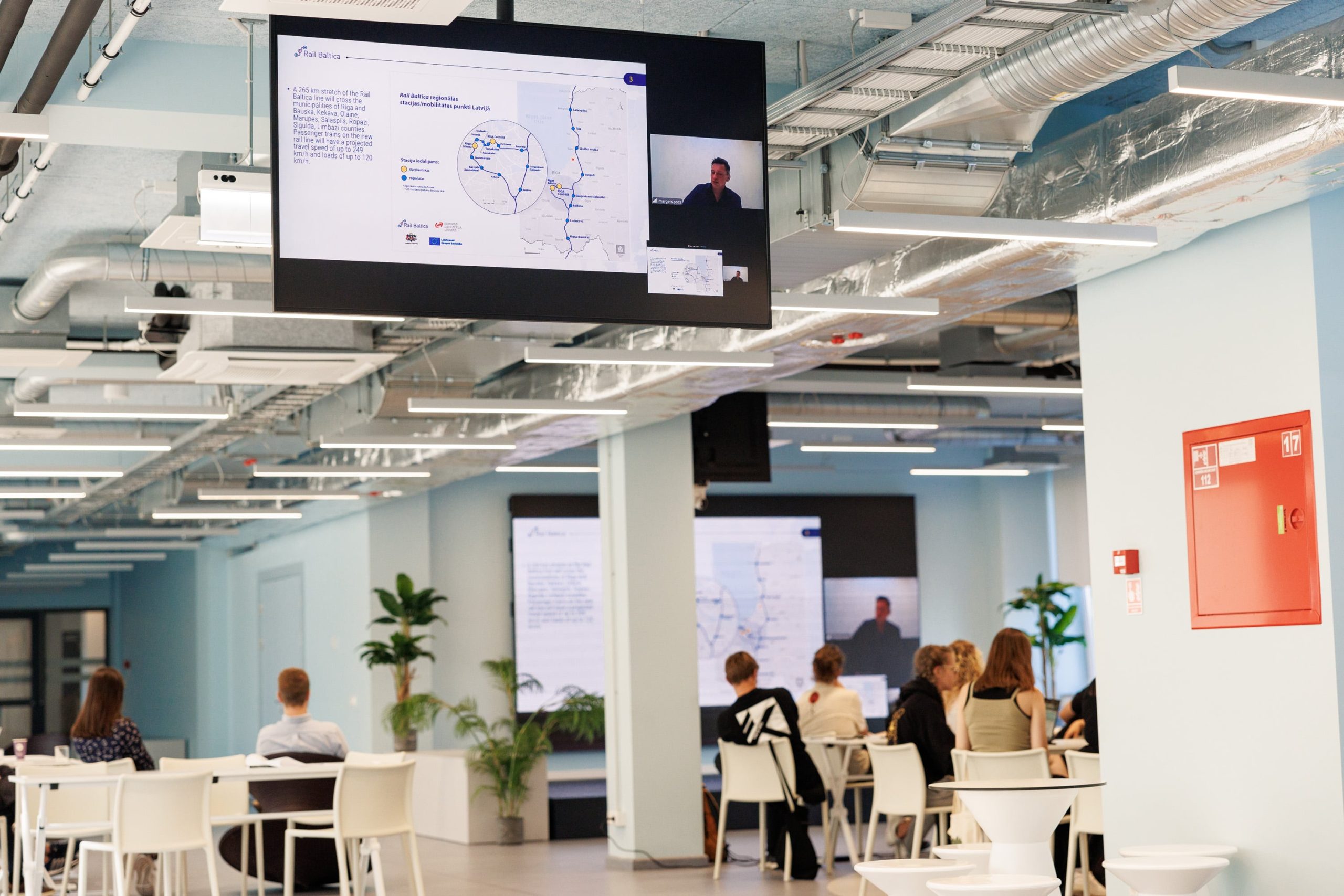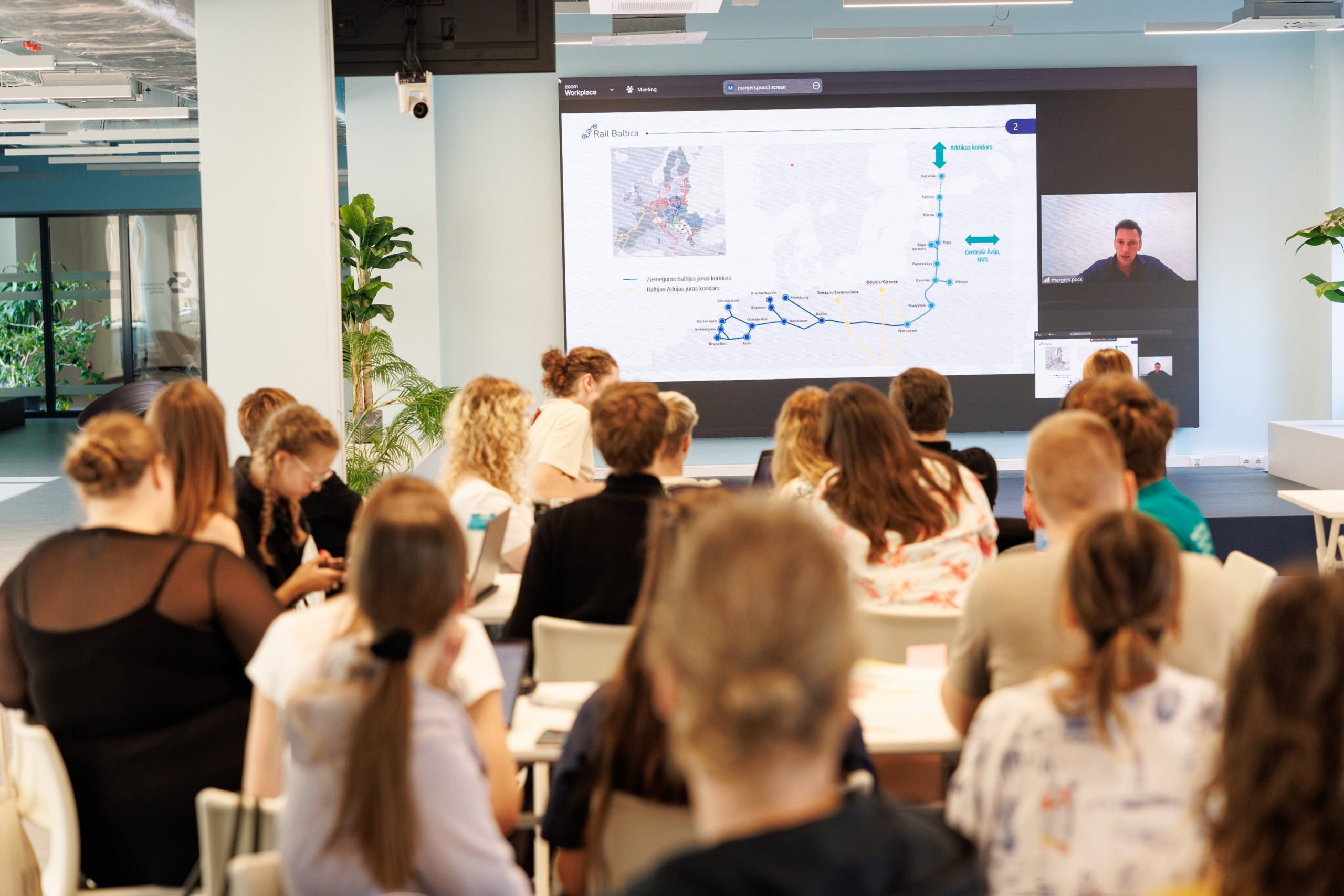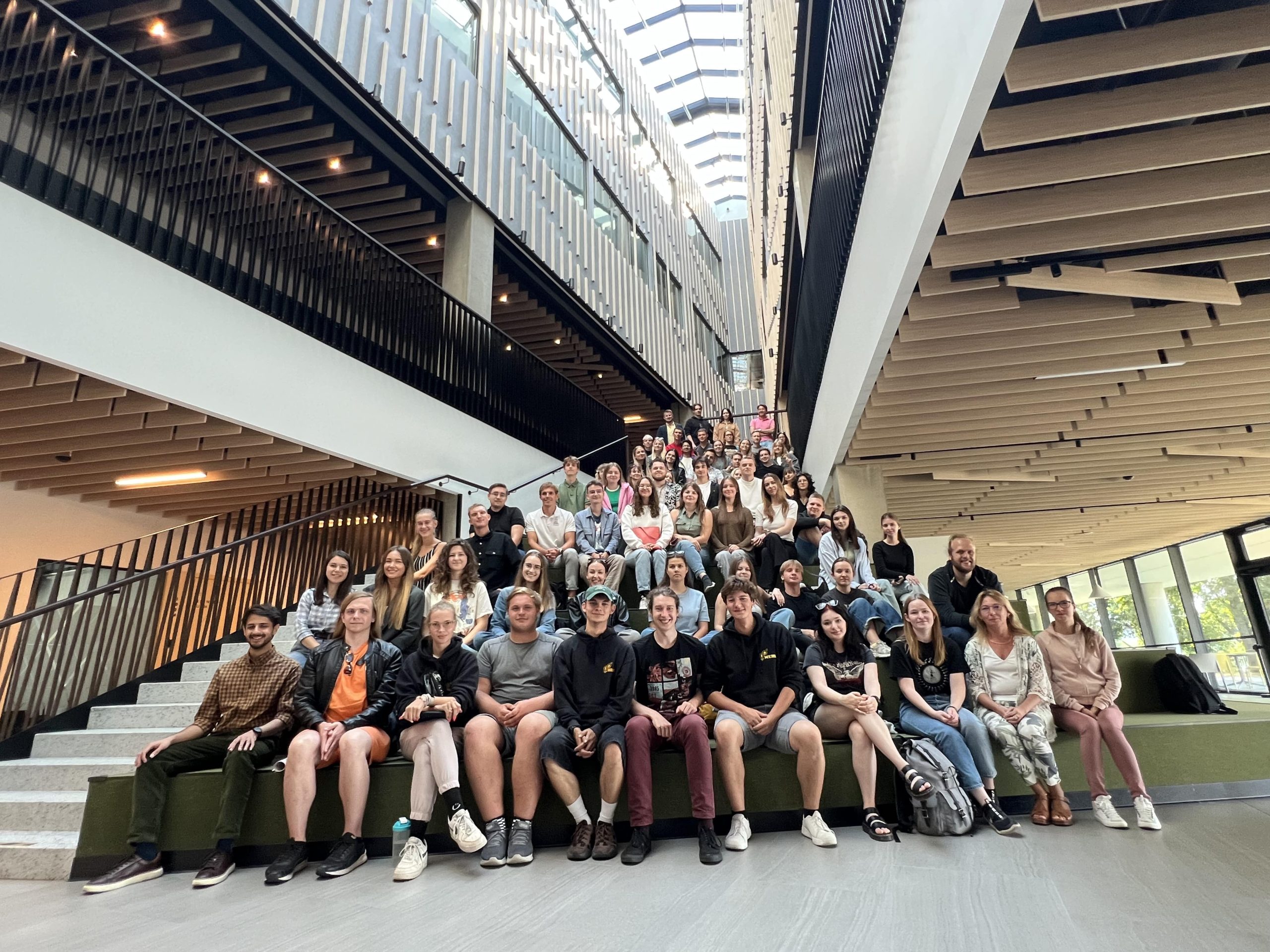The BUSBaltica program was developed with the goal of promoting sustainable urban mobility solutions in the Baltic region. To allow students to work on real-world mobility challenges, the program focused on the issues faced by the Rail Baltica project while highlighting the benefits such projects bring to urban development and regional mobility improvement.

Over the course of a week, the students took part in workshops and practical idea validation sessions. To deepen their understanding of mobility issues and solutions in various Baltic cities, experts from industry and other fields were invited.
During their visit to Riga, students had the opportunity to attend a guest lecture by Marģers Počs, Head of Passenger Station Development at Eiropas Dzelzceļa līnijas, the national implementing body of the Rail Baltica project in Latvia. He presented the planned Rail Baltica route in Latvia and the opportunities the project offers in developing Rail Baltica stations.

The Rail Baltica global project fosters positive collaboration and relationships with stakeholders, including residents, businesses, and local authorities, to ensure the project meets social needs and promotes inclusive benefits. To identify the most suitable and effective solutions for improving Rail Baltica stations as convenient regional multimodal transport hubs, the students in Riga participated in a hackathon at Riga Technical University. Their task was to explore how to maximize the benefits of Rail Baltica stations, encourage greater use of rail, foster new mobility habits, and suggest solutions and services to promote the shift from private to public transport.
The students were highly creative, presenting numerous interesting and realistic ideas. For instance, they proposed the Rent-a-Read project, which would allow passengers to rent books at stations and return them at designated points in other Rail Baltica stations to pass the time during their journey. Another group focused on waste collection and recycling in stations, proposing the installation of universal deposit return machines that could recognize and accept bottles from different countries, thus standardizing the recycling process.
Another group considered solutions for pet-friendly train travel. Many travelers leave their pets at home because pet-friendly transport options are lacking. The students proposed creating a special carriage for such travelers, with features like liquid-resistant floor mats, dedicated pet toilets, durable and scratch-resistant furniture, and even the option to buy food and water for pets.
Inspired by the fact that 30% of train travelers tend to take naps, another idea, Tududream, suggested renting pillows at stations to make resting more comfortable.
There were also ideas for mobile apps. For example, instead of navigating crowded tourist hotspots, an app for local adventures could connect travelers with residents who could offer lesser-known routes and recommendations. Another idea addressed the problem that travelers cannot see all related transport routes or buy tickets for them in one place. As a solution, students proposed the user-friendly AtoBaltica app, which would simplify travel across the Baltic states by combining all transport options – bus, train, taxi, ferry, and even micro-mobility rentals. Users could enter their starting and ending points, set their transport preferences (including availability), and instantly see a comprehensive list of transport options with ticket purchase possibilities.

The BUSBaltica training program aims to promote the development of sustainable urban mobility solutions across the Baltic region by reflecting real-world scenarios and offering practical solutions. The project focuses on innovation, entrepreneurship, and urban mobility, helping students become future leaders in sustainable mobility. The one-week challenge-based course spans the Baltic region and includes workshops on public transport connecting different cities, as well as idea validation and team-working sessions supported by mentors. The route includes bus trips between Tartu, Riga, and Kaunas.
The project was carried out by the educational technology company Kimitisik, Riga Technical University’s Science and Innovation Centre, Kaunas University of Technology, and the University of Tartu, with financial support from the European Institute of Innovation & Technology’s (EIT) Knowledge and Innovation Community, EIT Urban Mobility.